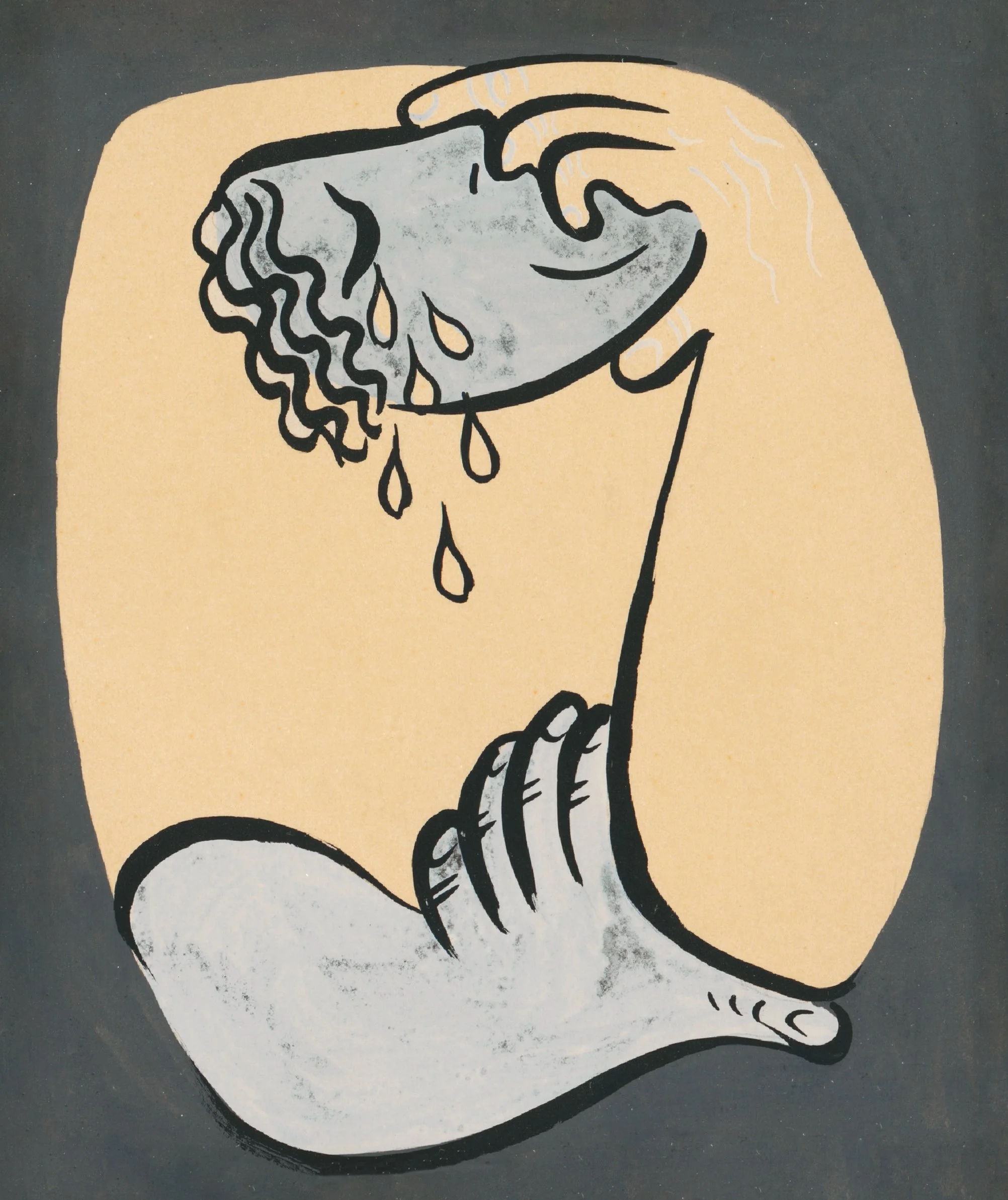Struggle outside the workplace: women in the vanguard
By Jess Spear
“It is workers’ strategic location at the point of production which gives them tremendous power to disrupt capital’s profits at the source. By using the power to strike, workers have historically forced major concessions from capital — not only to pay workers more, but also to transform workplace conditions more broadly.”
This is a quote by Matt Huber from his book Climate Change as Class War.
I agree with this quote. I think it’s accurate, in the abstract. If workers down their tools and walk off the job, no wealth can be created, and society would grind to a halt. It follows, therefore, that the strike is the most powerful tool workers have to force change.
But if this is what you tell working class communities that face cuts to benefits or can’t get their landlord to deal with the rampant mould in their council home, it’s actually not very helpful advice.
For revolutionary Marxists seriously thinking strategically about where we should focus our efforts and what is the most effective work we can do in the here and now, this suggests we should have an orientation to the working class in the workplace. It implies that struggles outside the workplace, which are often led by women, are less effective and therefore less important.
And yet, the biggest social movement in Ireland in the last decade was the anti-water charges movement. This movement was undoubtedly a class struggle, but it was not a “workplace issue”. Working-class women, many of them stay-at-home mothers, physically blocked the installation of water meters and helped to organise and rally their communities to boycott the tax. They were leaders in this mass movement of non-payment and street protests that ultimately defeated the water charges.
““Working-class women have always been campaigning and organising to ensure their families have what they need to thrive.””
This is just one example of how working-class struggle takes place in many deindustrialised, wealthy countries today. It often takes place outside the workplace and is led by women.
Of course, these struggles aren’t new. Working-class women have always been campaigning and organising to ensure their families have what they need to thrive. From organising mass rent strikes to fighting against the construction of nuclear reactors, and wherever the forces of destruction attempt to cut down trees, pollute our air and water, and rip away the earth for minerals, women have been leading the resistance.
Actually existing capitalism
Since the dawn of capitalism, profit has always been based primarily on two inputs: workers' labour power and nature. Capitalism needs both these things to create commodities and accumulate capital.
Through violent colonisation it connected exploited peoples in the “periphery” to a growing working class in the “core” through the extraction of raw materials that were processed in the new factories (for example, cotton picked by enslaved Africans in the American colonies was processed by workers in the cotton mills of England and Scotland).
For capitalism, nature is a free gift to plunder, to extract from, and to dump your wastes into. It has no inherent value as a life-giving ecosystem. So it is with women’s reproductive labour. The gendered division of labour in both the home and in society, whereby women are largely responsible for caring for children and elderly people, for cooking and cleaning, and making up the vast majority of teachers, nurses, childcare workers, and so on, is both a product of and helps to reinforce and reproduce sexist ideas.
Capitalism relies on the mostly unpaid labour of women to birth and raise a new generation of workers ready and fit to be exploited for profit. Both women’s reproductive labour and nature are taken and consumed in the process of capital accumulation without compensation. This cheapens the overall cost of production, creating huge profits for the capitalists, and externalising the real and deadly costs onto the rest of society.
Actually existing capitalism today is a much more formidable and destructive beast than when Marx first looked behind the factory door and described its inner workings. Today, it’s an extractive circuit1 which literally “crisscrosses the world”2 to create commodities, exploiting both humans and nature, exhausting both in uneven ways. It’s restructuring society and reshaping how families and individuals actually live in and experience this world.
The impact of today’s capitalism on working-class women is vital if we want to understand where struggles against this system have emerged, will continue to do so, and why.
Work till you drop
Women in advanced capitalist countries have won political and civil rights through persistent struggle by countless women, as well as LGBTQ+ people and men. But their ability to exercise these rights continues to be restricted in two ways. Firstly, because of capitalism’s dependence on the free labour they perform in the home. And secondly, because of the sexist ideas that persist and ensure this gendered division of labour continues.
For wealthy working-class women, the extractive circuit offers up other women from neo-colonised and poorer countries, forced to leave their own families to cover your care work in the home. The care worker isn’t there to give the wealthy woman free time, but to allow her to work longer hours. Her remittances are sent home to help support the family left behind, further embedding her country’s position in the circuit and deepening a global division of labour that continues to extract value from the periphery to the core.
And what about all the mothers who can’t afford a nanny?
I’m a new mother. (My child is now two years old.) And let me tell you: nothing has deepened my commitment to a communist future more than having a child in this hyper-individualised society, where families live isolated from each other, each one alone to confront their mountain of care responsibilities.
When you have a child, especially when they are young, each day is a race against the clock. From the time you wake until you go to sleep at night, you are working; there is zero rest time. If you’re not watching over them to ensure they don’t die, you’re cooking food, shopping, cleaning, doing laundry, and sorting through mountains of stuff Facebook convinced you to buy when you were operating on two hours of sleep. (I literally bought a teething toy shaped like a radish one night that my child has never used and never needed.) If you stop for one day, if you pause your care work for just an evening, the piles of dishes and laundry get bigger, and the task becomes less manageable.
The capitalist solution to this time poverty is more technology and more stuff. Nancy Fraser's book, Cannibal Capitalism, gives a good example of what this looks like for breastfeeding mothers. If you don’t have adequate maternity leave (ie, two years fully paid), feeding your baby becomes two jobs. You have to both feed your baby when you’re off work and also find time to pump milk for when you’re not around.
So, “double-cup, hands-free pumps are considered the most desirable choice because they permit one to express milk from both breasts at once while driving to work on the freeway.” There are even breast pumps that you can put on while you do the shopping.
““Nothing has deepened my committment to a communist future more than having a child in this hyper-individualist society...””
Food delivery is another example. So many of us have come to rely on it because it saves time cooking and cleaning.
But food delivery and hands-free breast pumps don’t liberate us from the burdens we struggle with in the long run. Neither do the million and one products engineered to help you care for your kids in less time, whether it's disposable diapers, twenty different kinds of disposable wipes, or the vast array of gadgets to prep and cook meals and toys to distract your kids so you can clean the house or fold the laundry. All of these commodities generate profits for the very system that necessitates that each individual family shoulder 100 per cent of the responsibility to keep their child alive, healthy, and ready to contribute to society.
Buy, use, toss, repeat
Of course, the extractive circuit not only forces you to work to live, it’s also destroying the very life support systems we need to survive as a species.
It isn’t just the fossil fuels burned to fuel the system; it’s also the resources stripped from the earth to create all these things we don’t need and didn’t even know existed without targeted advertisement, and also all the things we do actually need to live in our individual little family units.
Did you know refrigerators today have a lifespan of only 10 years? They used to last 50. Previous generations only had to buy one; now we’re all going to have to buy three or four of them over our lifetimes.
Everything we buy is engineered to become waste sooner rather than later, creating gargantuan mountains of rubbish and new demands on the system to make more and more and more. This means we have to spend more of our precious time, work more hours, just to acquire all the things we need to live
Give up or fight back?
The exhaustion this system creates among the exploited and oppressed peoples, and women in particular, will undoubtedly compel a fightback. For some women, the answer to this exhaustion is to join the tradwife movement, where women are saying, “Actually, I think I might be happier back in the home and not having to worry about work-life balance.”
Just six years after a mass movement forced the removal of the 8th Amendment, granting women and pregnant people the right to abortion care, working-class communities voted against removing reference to women’s place being in the home from the constitution.
The far right is tapping into the anxiety, stress, and insecurity mothers feel about the lack of affordable housing, childcare, good jobs, and quality public services. They channel it towards demands for the state to kick out migrants so that it has more resources to house and provide services to “our own”. They use it to push back against the gains we’ve made on abortion rights and LGBTQ rights. They say society’s gone too far, feminism has gone too far, sure, climate change is all a hoax, you needn’t worry about that. It’s all a conspiracy to take away your freedom to be a mother, your right to a home and social supports.
What is the socialist response to women overburdened by demands in and out of the home? What is our response to the climate and ecological emergency created by an always-on capitalism that demands we are either working or consuming every second of our lives? What are our demands not just in the here and now, but our vision of how life could be radically different?
I think Jean-Luc Melenchon, in the recent French parliamentary elections, put it better than I could. He said we want “to harmonise the rhythms of production with those of nature…to nationalise time” because “we say the time of life, the time which counts, isn’t only the time you believe useful because it's producing, time isn’t only the time under constraint, useful to society, time spent working, it's also free time…where we ourselves decide what we’ll do…to live, to love, to do nothing, to attend to our loved ones, to read poetry, to paint, to sing…Free time is the time when we have the possibility to be fully human, that’s what we’re talking about.”3
To put it more concretely: we want free and local childcare, yes, but we also want to work less in the workplace and in the home. We want a 4-day work week without loss in pay and community canteens. We don’t want to go backwards, we want to open the door to a new society, an ecosocialist world in which the community is responsible for organising social reproductive work and sexist ideas about “women’s” vs. “men’s work” can begin to wither away. Where women, nonbinary, and LGBTQ people will then be truly free to choose what work they want to engage in, enriching all of society with their contributions.
Women in the Vanguard
I want to come back to the quote I started with. “It is workers' strategic location at the point of production which gives them tremendous power to disrupt capital’s profits at the source,” Matt Huber says. Yes. But it is in the home and in the community that working-class people, and particularly women as household managers, primary carers, and working two shifts a day, actually experience the failure of the system to deliver for them. This is where women are increasingly becoming radicalised. And it is there that organising and struggle are so often emerging today.
““We want free and local childcare, yes, but we also want to work less in the workplace and in the home”.”
If we want a Marxist understanding of class struggle that illuminates the movements that are likely to emerge and who will be in the vanguard of the forces for revolutionary change, we need to go beyond the old formulas and schemas. We need to consider what capitalism demands of our bodies, our minds and our environment today that engenders passion for change.
If we do that, a much more vivid picture of struggle comes into view, one with the potential power to confront and strike blows against capitalism outside the workplace.
Endnotes
1. Ajay Singh Chaudhary, The Exhausted of the Earth: Politics in a Burning World (London, 2024).
2. Ibid
3. https://x.com/broderly/status/1641910171914891264



